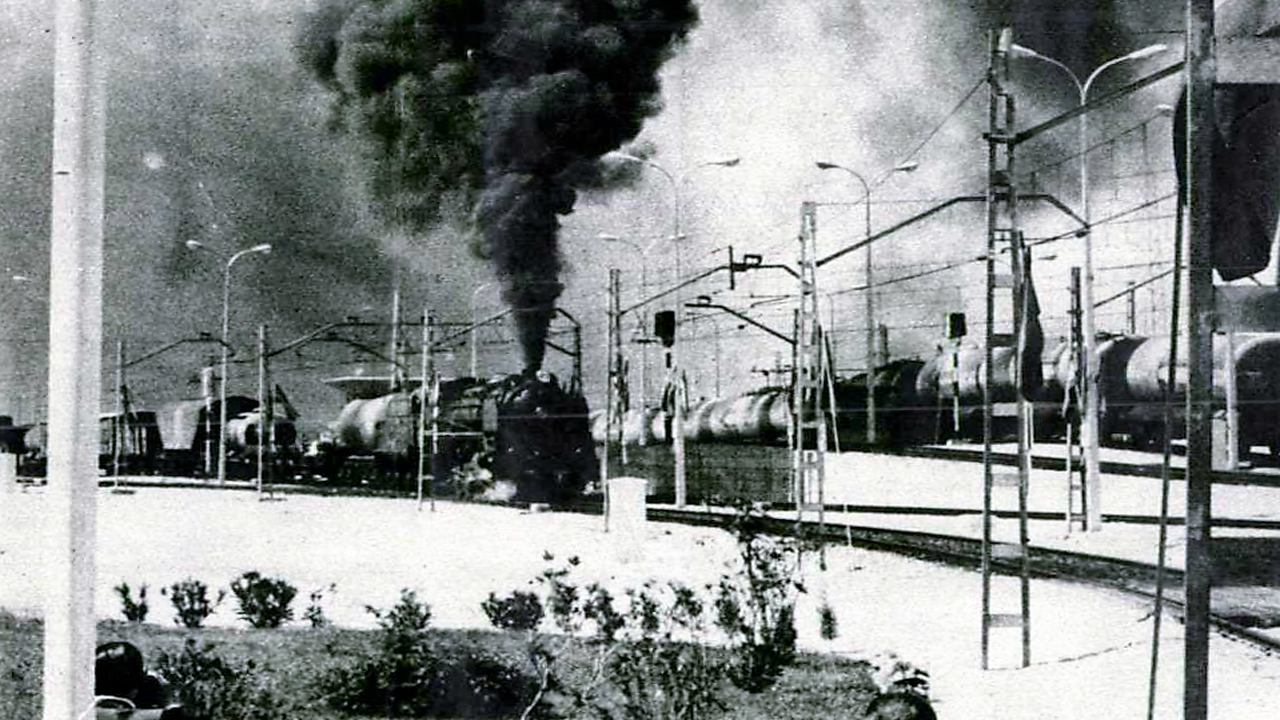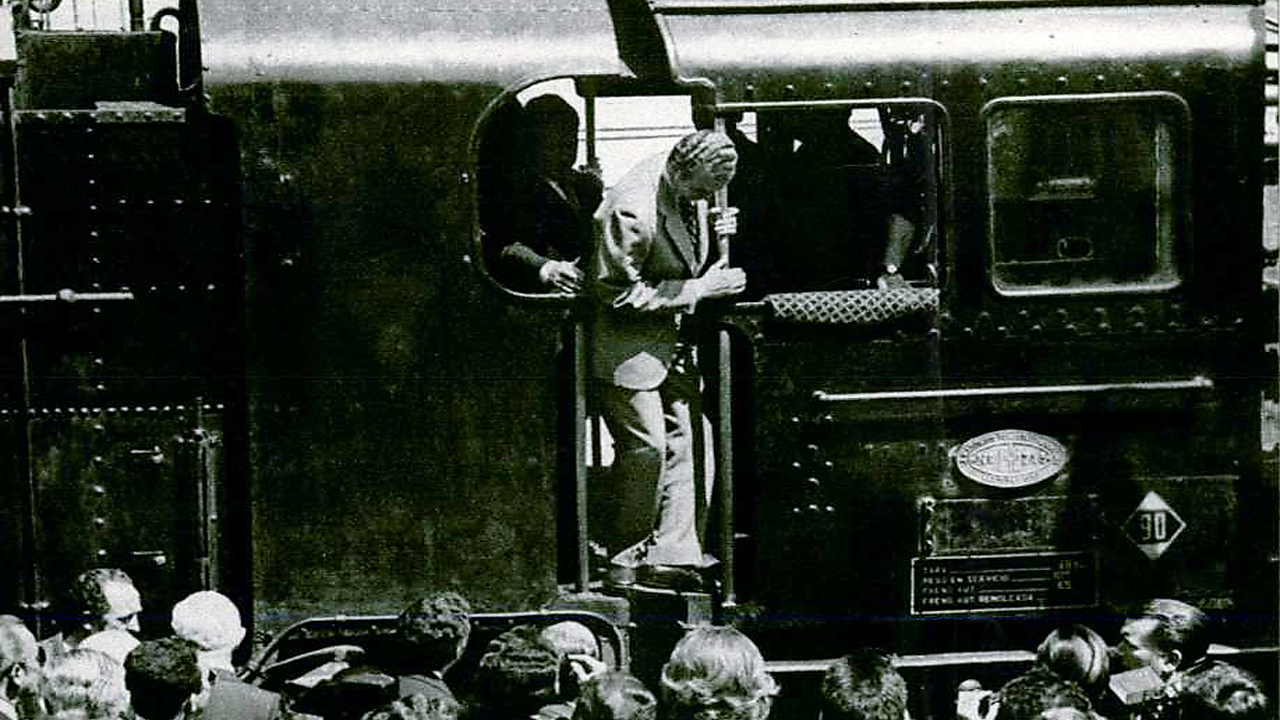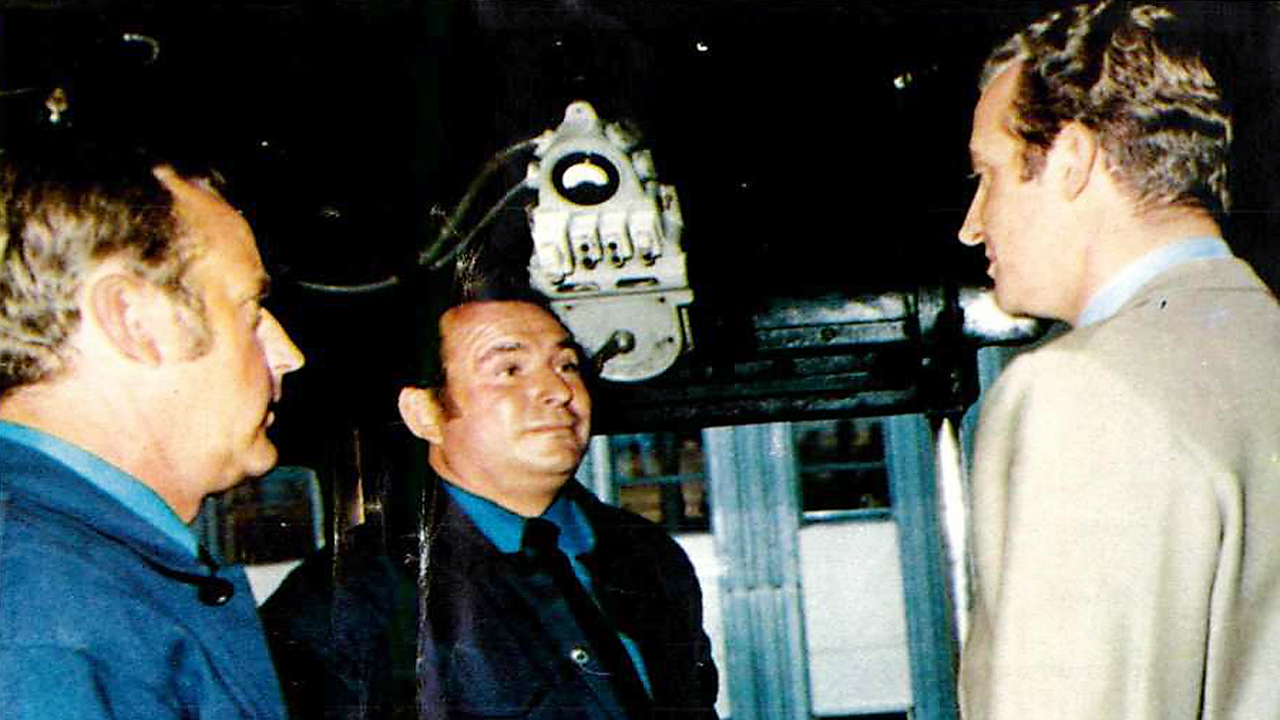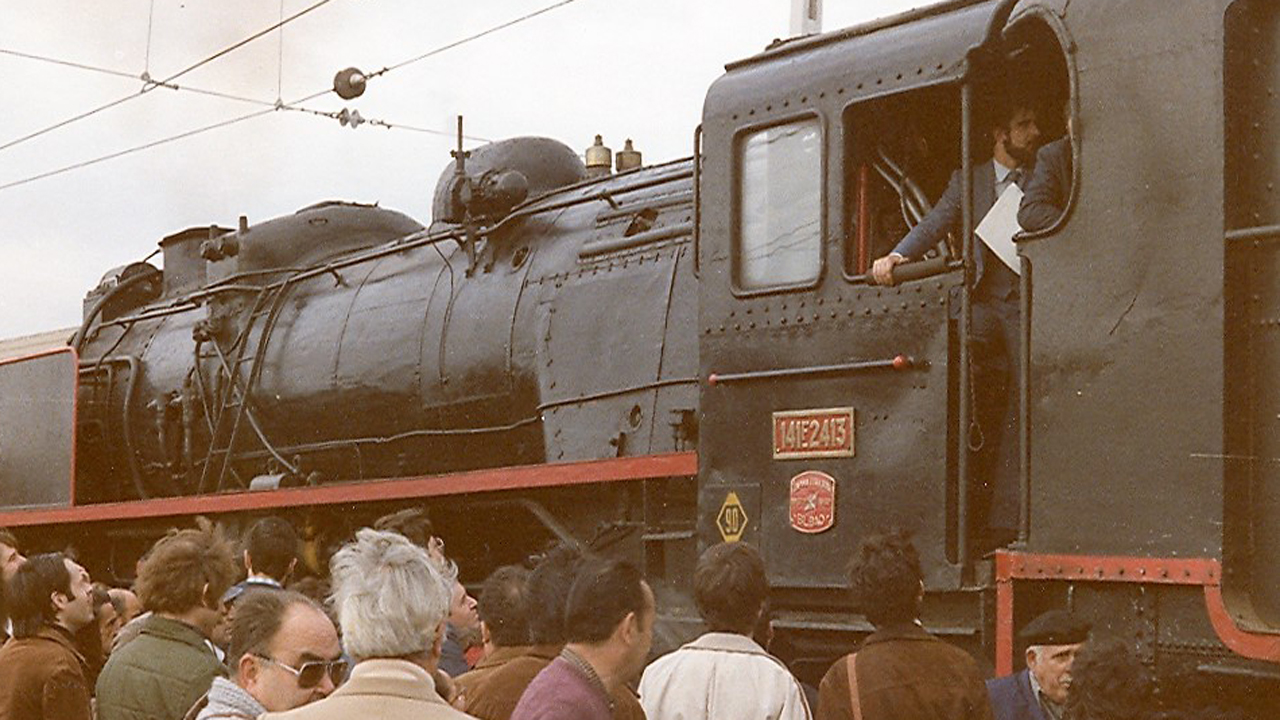
"Mikado" locomotive towing freight cars, 50s

Acts of closure of steam traction, 1975

Acts of closure of steam traction, 1975

Acts of closure of steam traction, 1975
17 - "Mikado" locomotives
The Museum has two “Mikado” locomotives, one of the most
common series used in the wide-gauge railway. Its name
appears to come from the series’ origin. The first batches
of this type of locomotive was built in the late 19th
century for Japan by the American Baldwin company. In order
to please the purchasers, the sales department named it
“Mikado,” the title of the Japanese Emperor. From then on,
all locomotives featuring a 141 wheel arrangement were known
by this name.
The Museum’s two “Mikado” locomotives were originally
designed to run on fuel oil instead of coal. Although they
were slightly less powerful than the so-called “Renfe” ones,
their features were very similar. They had a slenderer
appearance, with a simpler, more modern design. They were
universal engines that carried out all kinds of operations,
being scattered throughout all of the network’s depots; they
were also the last steam engines in service.
The one on the right is the last locomotive that was
operated in our country. It was symbolically turned off in a
solemn ceremony by the then Prince Juan Carlos, on June 23,
1975.


